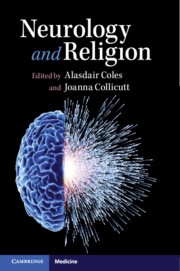Book contents
- Neurology and Religion
- Neurology and Religion
- Copyright page
- Contents
- Contributors
- Preface
- Part I The Neurological Study of Religion
- Part II Neurology and Religion
- II.I Clinical Conditions
- Chapter 9 Temporal Lobe Epilepsy, Dostoyevsky and Irrational Significance
- Chapter 10 Parkinson’s Disease, Religious Belief and Spirituality
- Chapter 11 Beyond Reasonable Doubt
- Chapter 12 Ramadam Fasting and Neurologic Disorders
- Chapter 13 Autism and the Panoply of Religious Belief, Disbelief and Experience
- Chapter 14 Personhood and Religion in People with Dementia
- Chapter 15 Religion and Frontotemporal Dementia
- II.II Therapy
- II.III Death and the Brain
- Bibliography
- Index
- References
Chapter 13 - Autism and the Panoply of Religious Belief, Disbelief and Experience
from II.I - Clinical Conditions
Published online by Cambridge University Press: 28 October 2019
- Neurology and Religion
- Neurology and Religion
- Copyright page
- Contents
- Contributors
- Preface
- Part I The Neurological Study of Religion
- Part II Neurology and Religion
- II.I Clinical Conditions
- Chapter 9 Temporal Lobe Epilepsy, Dostoyevsky and Irrational Significance
- Chapter 10 Parkinson’s Disease, Religious Belief and Spirituality
- Chapter 11 Beyond Reasonable Doubt
- Chapter 12 Ramadam Fasting and Neurologic Disorders
- Chapter 13 Autism and the Panoply of Religious Belief, Disbelief and Experience
- Chapter 14 Personhood and Religion in People with Dementia
- Chapter 15 Religion and Frontotemporal Dementia
- II.II Therapy
- II.III Death and the Brain
- Bibliography
- Index
- References
Summary
While the cognitive mechanisms that incline us towards theistic belief in superhuman agents have been well documented over the past 30 years, unbelief has only recently begun to receive attention. Recent studies suggest that, just as with theistic belief, various psychological mechanisms and processes, such as a propensity for analytic thinking, might incline one towards unbelief. Moreover, it has been suggested that atheism and analytic thinking may both be mediated by constraints presented in autistic individuals (Caldwell-Harris 2012; Clark 2019). In this chapter, we will present and evaluate a few studies relating to both unbelief and autism and then consider some additional ideas that we hope will contribute to a fuller understanding of possible approaches to religion and spirituality in autistic individuals.1
- Type
- Chapter
- Information
- Neurology and Religion , pp. 139 - 148Publisher: Cambridge University PressPrint publication year: 2019
References
- 1
- Cited by



